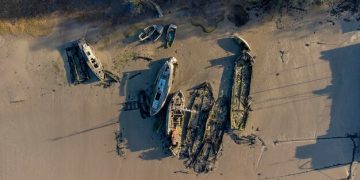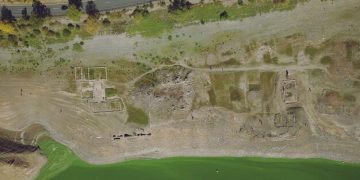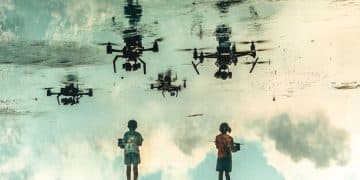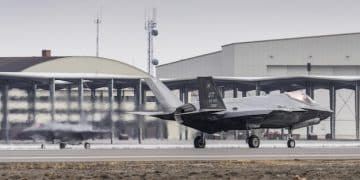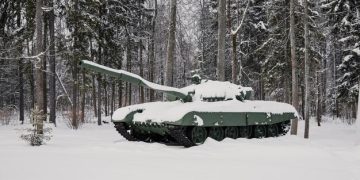What are the 3 Emerging Global Health Crises the US Military is Preparing to Address?
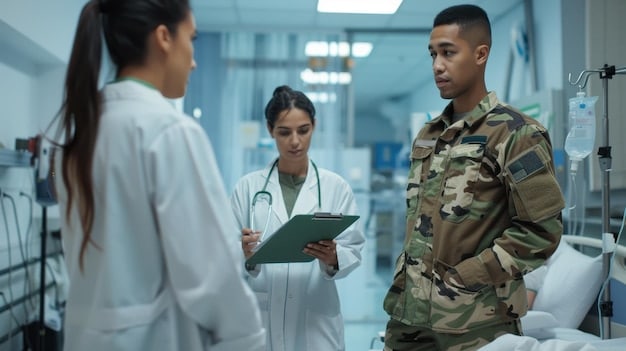
What are the 3 Emerging Global Health Crises the US Military is Preparing to Address? They include pandemics, antimicrobial resistance, and the health impacts of climate change, posing significant threats to global security and requiring military preparedness.
The U.S. military, known for its defense and security operations, also plays a crucial role in preparing for and responding to global health crises. These crises, often transboundary and multifaceted, can destabilize regions, disrupt supply chains, and pose direct threats to both military personnel and civilian populations. So, what are the 3 emerging global health crises the US Military is Preparing to Address?
Understanding these threats and the military’s preparedness strategies is essential for anyone interested in global security, public health, and humanitarian efforts. Let’s explore the key crises that demand the U.S. military’s attention and resources.
Understanding Global Health Threats and Military Preparedness
Global health threats are increasingly recognized as critical security issues. The U.S. military’s involvement in addressing these threats stems from their potential to undermine national security, disrupt international stability, and impact military operations. What are the 3 emerging global health crises the US Military is Preparing to Address? The military approaches these challenges with a combination of medical expertise, logistical capabilities, and strategic planning.
Military preparedness involves surveillance, research, training, and deployment strategies tailored to mitigate the impact of health crises. Collaboration with international organizations, government agencies, and research institutions is also a key aspect of their approach.
The Interconnection Between Global Health and Security
Global health crises can have far-reaching consequences, affecting economic stability, political relations, and social order. These crises can also strain healthcare systems, disrupt trade and travel, and create environments conducive to conflict and instability. Addressing global health threats is therefore an integral part of maintaining global security.
- Economic Stability: Pandemics and other health crises can lead to economic downturns, impacting livelihoods and increasing poverty.
- Political Relations: Health crises can strain relationships between nations, particularly when resources are scarce or when responses are perceived as inadequate.
- Social Order: Widespread illness and death can erode social trust and lead to unrest, creating security challenges.
In conclusion, military preparedness for global health threats involves a multifaceted approach that considers both the direct health impacts and the broader security implications. It requires strategic planning, resource allocation, and collaboration with various stakeholders.
Pandemic Preparedness and Response
Pandemics, such as the recent COVID-19 outbreak, pose significant threats to global health and security. The rapid spread of infectious diseases can overwhelm healthcare systems, disrupt economies, and destabilize societies. The U.S. military plays a crucial role in pandemic preparedness and response, leveraging its unique capabilities to mitigate the impact of such events. What are the 3 emerging global health crises the US Military is Preparing to Address? Pandemic preparedness is certainly one of them.
Military involvement includes medical support, logistical assistance, and strategic coordination to ensure effective response efforts.

The U.S. military’s pandemic response strategy involves several key components:
- Early Detection and Surveillance: Monitoring emerging infectious diseases and developing rapid detection systems to identify potential outbreaks.
- Medical Support and Capacity Building: Providing medical personnel, equipment, and facilities to augment civilian healthcare systems during peak demand.
- Logistical Support and Distribution: Managing the distribution of vaccines, medications, and other essential supplies to ensure timely access for affected populations.
- Strategic Coordination and Communication: Collaborating with government agencies, international organizations, and private sector partners to coordinate response efforts and communicate effectively with the public.
The Role of Military Research in Pandemic Preparedness
Military research is essential for developing effective vaccines, diagnostics, and therapeutics to combat emerging infectious diseases. The U.S. military invests in research programs focused on identifying and characterizing potential pandemic threats and developing medical countermeasures to prevent and treat infections.
One example is the Walter Reed Army Institute of Research, which has a long history of conducting research on infectious diseases and developing vaccines for military personnel and civilian populations. Military research also plays a crucial role in understanding the transmission dynamics of infectious diseases and developing strategies to control their spread.
In conclusion, pandemic preparedness and response are critical components of the U.S. military’s global health security strategy. Military involvement includes surveillance, research, medical support, logistical assistance, and strategic coordination to mitigate the impact of pandemics and protect both military personnel and civilian populations. Military pandemic preparation is key when considering what are the 3 emerging global health crises the US Military is Preparing to Address?
Combating Antimicrobial Resistance
Antimicrobial resistance (AMR) is a growing global health threat that undermines the effectiveness of antibiotics and other antimicrobial drugs. The rise of resistant bacteria, fungi, viruses, and parasites poses a significant challenge to healthcare systems and can lead to increased morbidity, mortality, and healthcare costs. The U.S. military is actively involved in combating AMR through surveillance, research, and stewardship programs. So when wondering what are the 3 emerging global health crises the US Military is Preparing to Address? Make sure to highlight this.
Military efforts aim to preserve the effectiveness of antimicrobial drugs and prevent the spread of resistant organisms.
The U.S. military’s strategy to combat antimicrobial resistance involves several key components:
- Surveillance and Monitoring: Tracking the prevalence of antimicrobial-resistant organisms in military populations and healthcare facilities.
- Research and Development: Developing new diagnostics, therapeutics, and prevention strategies to combat AMR.
- Antimicrobial Stewardship: Promoting the appropriate use of antimicrobial drugs to minimize the development and spread of resistance.
- Infection Prevention and Control: Implementing measures to prevent the transmission of resistant organisms in healthcare settings.
The Impact of AMR on Military Operations
Antimicrobial resistance can have significant implications for military operations, potentially compromising the health and readiness of military personnel. Infections that were once easily treatable with antibiotics can become life-threatening, requiring more intensive medical care and prolonged recovery periods. AMR can also complicate battlefield medicine, where rapid and effective treatment is essential.
The U.S. military works to build capacity for AMR surveillance and control in partner nations. This includes providing training, equipment, and technical assistance to strengthen healthcare systems and improve infection prevention and control practices.

In conclusion, combating antimicrobial resistance is a critical component of the U.S. military’s global health security strategy. Military efforts include surveillance, research, stewardship, and international collaboration to preserve the effectiveness of antimicrobial drugs and prevent the spread of resistant organisms. A defense against antimicrobial resistance is another aspect of answering what are the 3 emerging global health crises the US Military is Preparing to Address?
Addressing Health Impacts of Climate Change
Climate change poses a significant threat to global health, with far-reaching consequences for human populations and healthcare systems. Rising temperatures, extreme weather events, and changing patterns of infectious diseases can exacerbate existing health challenges and create new ones. The U.S. military recognizes the health impacts of climate change as a critical security issue and is taking steps to address these challenges.
Military efforts include assessing vulnerabilities, adapting infrastructure, and providing humanitarian assistance in response to climate-related disasters.
The U.S. military’s strategy to address the health impacts of climate change involves several key components:
- Risk Assessment and Vulnerability Analysis: Identifying populations and regions that are most vulnerable to the health impacts of climate change.
- Infrastructure Adaptation and Resilience: Enhancing the resilience of military facilities and supply chains to withstand climate-related disruptions.
- Disaster Response and Humanitarian Assistance: Providing medical support, logistical assistance, and emergency relief in response to climate-related disasters.
The military’s involvement in climate-related health initiatives also extends to international partnerships. The U.S. military collaborates with partner nations to build capacity for climate resilience and health adaptation, sharing expertise and resources to address shared challenges.
In conclusion, addressing the health impacts of climate change is a critical component of the U.S. military’s global health security strategy. Military efforts include risk assessment, infrastructure adaptation, disaster response, and international collaboration to mitigate the health risks associated with climate change and protect vulnerable populations.
| Key Point | Brief Description |
|---|---|
| 🦠 Pandemic Preparedness | Military focuses on rapid response, medical support, and vaccine distribution during pandemics. |
| 💊 Antimicrobial Resistance | Efforts include monitoring, research, and stewardship to prevent the spread of resistant infections. |
| 🌡️ Climate Change Impacts | Military assesses risks, adapts infrastructure, and provides aid in climate-related disasters. |
| 🤝 Global Collaboration | Working with international partners to address health challenges effectively. |
Frequently Asked Questions
The US military provides medical support, logistical assistance, and strategic coordination during global health crises, leveraging its resources to mitigate the impact of events like the COVID-19 pandemic.
The military is enhancing its surveillance systems, developing medical countermeasures, and improving its logistical capabilities to respond effectively to future infectious disease outbreaks.
Military efforts to address antimicrobial resistance include monitoring resistant organisms, promoting antimicrobial stewardship, and developing new strategies to prevent the spread of resistance.
The military recognizes that climate change exacerbates existing health challenges and creates new ones, such as increased extreme weather events and changing patterns of infectious diseases.
The three key crises are pandemic preparedness and response, combating antimicrobial resistance, and addressing the health impacts of climate change, all posing critical threats to global security.
Conclusion
In conclusion, what are the 3 emerging global health crises the US Military is Preparing to Address? They include pandemics, antimicrobial resistance, and the health impacts of climate change. The U.S. military plays a crucial role in preparing for and responding to these global health crises, leveraging its unique capabilities to mitigate their impact and protect both military personnel and civilian populations.
By understanding these threats and the military’s preparedness strategies, we can better appreciate the importance of global health security and the need for continued investment in research, surveillance, and response capabilities.
